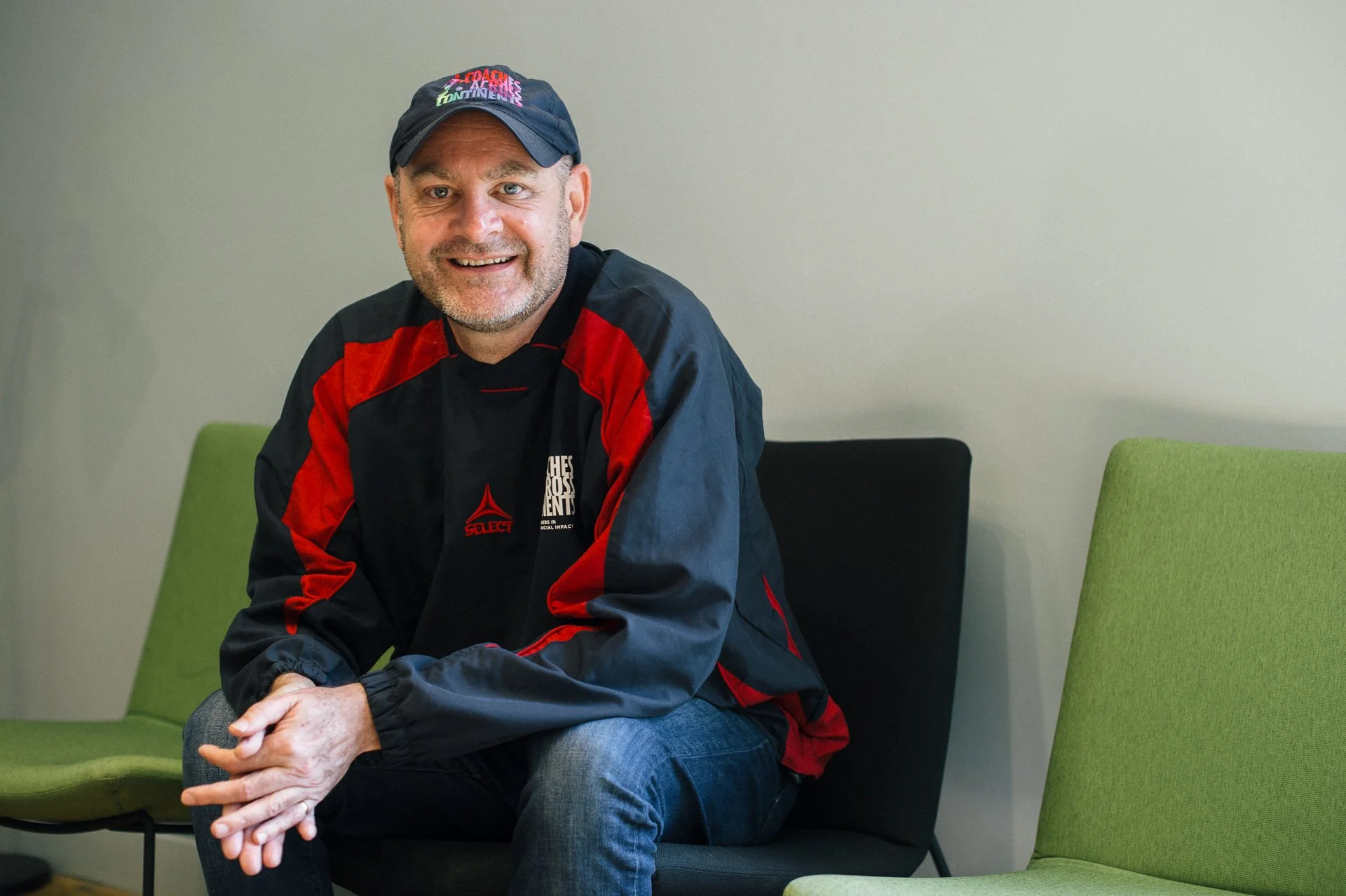“Football, for some reason, just cuts through every barrier”
|Coaches Across Continents Founder, Nick Gates. Image: Daniel Lipinski
Nick Gates was once more accustomed to the English Premier League than street football, but he’s now helping change lives across the globe.
The Englishman set up Coaches Across Continents in 2008 and hasn’t looked back since. Now in 60 countries worldwide, with another 50 on their waiting list, the company works with local programs to help them design, develop, and implement their own initiatives in their communities.
“We started 11 years ago, and we’re a traditional trainer–trainer model using football,” Nick explains.
“We’re here because we’ve heard so much great stuff about the Homeless World Cup, and I think about six of our groups worldwide are represented here this week, which is great to see.”
“I had a company in America that just did soccer camps, and I realised sport could do a lot more than that. I went travelling for two years to about 40 countries with a backpack—into some of the worst places in the world—and saw how sport could have an impact.
“I was enticed back into football when I became an executive in the Premier League, so I ran a football club in England. But I didn’t enjoy that as much as I did working with the kids in the street.
“After a year in Africa, I set up Coaches Across Continents. So I’ve been involved from the very first kick, and it’s been a joy to see it grow and develop.”
Representatives from more than 10 countries took part in the Coaches Across Continents development sessions on Thursday, and Nick believes football has the power to transcend aIl social issues.
“Football, for some reason, just cuts through every barrier. It’s a sport that allows us to have discussions about the most deep-rooted cultural, traditional, and religious issues, but using football takes away all the threat from the discussion. It then allows people to have a discussion about the issues that they perhaps wouldn’t have the opportunity to talk about otherwise in a more classroom-type environment.
“We talk about a safe space, so they can express their opinions and ideas. After 11 years, we now understand the issues that affect people around the world. But we’re always amazed by the creative solutions that people come up with if they feel like they can make a difference.
“We’ve chosen a couple of games and sessions that are pertinent to this event, so we have different stations that represent different addictions. When we did the research, we were aware drugs and alcohol addiction is a major problem around the world, and we’re keen on addressing gender roles and stereotypes.
“We’ve worked a lot with UNICEF and FIFA about child protection issues, and I think the people who run the Homeless World Cup just understand and respect what it must be like to not feel safe from an early age. By playing these short games, we can talk about these serious issues in a way we wouldn’t otherwise.
“Our coaches never correct things on the football or technical side of things. For example, if the passing isn’t great or something, all we’re interested in are their voices and giving them the skills and confidence to better communicate about the issues they face.
“By being across six continents, we’re able to share best practices and ideas from all parts of the world to help everyone use football to change lives for the better.”
Words: David Brockett
Images: Daniel Lipinski / Soda-Visual

